To mark this year’s Climate Week (26th September – 2nd October), we’re asking individuals, businesses and communities up and down the country to put climate change at the top of the conversation list.
Our aim is to normalise conversations about climate change and sustainability within NHSGGC, encourage everyone to talk more about its impact and what each of us plan to do to tackle it – only by taking action together will we succeed in becoming a net zero nation by 2045.
This year we’ve heard from individuals across the organisation who are taking steps both in their professional and personal life to become more sustainable, helping drive forward positive change in our approach to sustainability.
Profile 1: Nick Elliot and John Conroy, Asbestos Team, Estates and Facilities
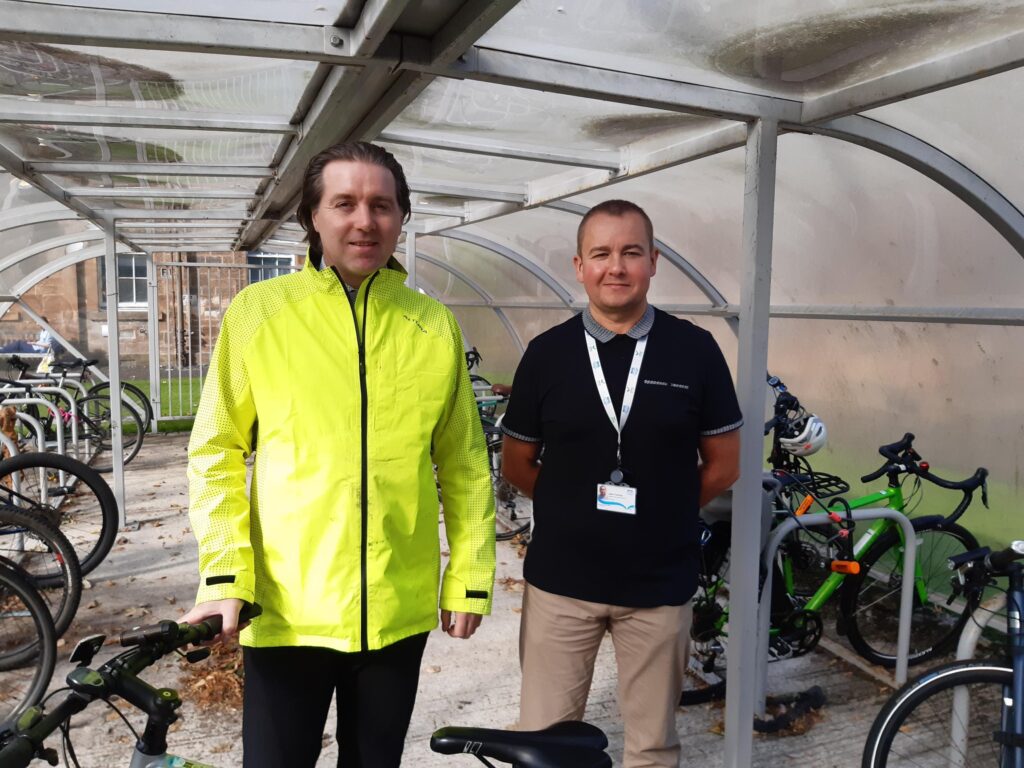
Nick and John are part of the Asbestos Compliance Team within Corporate Estates based at the QEUH. The roles require a mix of desk based work and site visits across the Board area to maintain an asbestos safe environment.
The past year has seen sustainability become a greater part of how the team operates, taking advantage of the resources and systems NHSGGC have in place to support staff in this area.
The team have utilised the Blended Working Policy to cut their commuting days by working from home two days a week and now commute by bicycle for the remainder of the week. There are secure cycle parking and showering facilities at their office. For site visits, greater use has been made of the fleet of electric pool cars.
John has made significant savings by buying his bike through the Cycle to Work Scheme which he found to be a painless process with many retailers participating in the scheme to choose from. The scheme includes accessories for those new or returning to cycling.
Nick found the transition to cycle commuting easier than expected and having optimised his commute away from busy roads, now enjoys a more peaceful commute with more consistent timings as cycles can take routes which closer mirror ‘as the crow flies’.
Profile 2: Helen Goodwin, Senior Dental Officer (Paediatrics), Public Dental Service
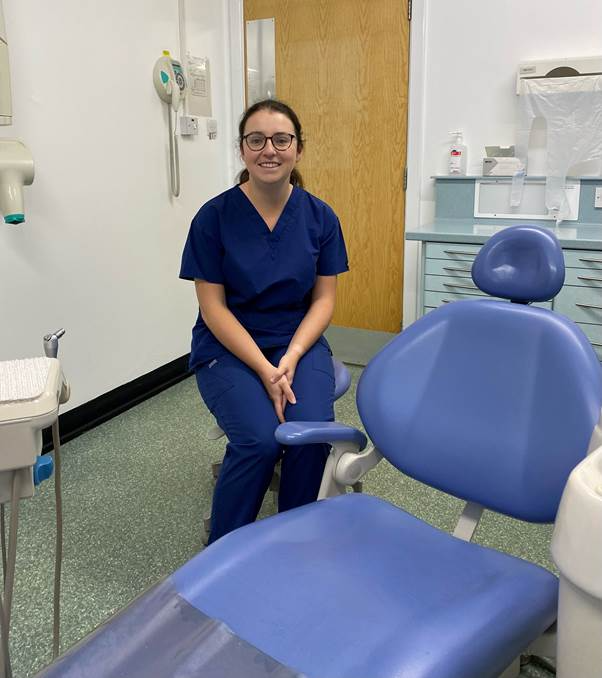
I am currently a Senior Dental Officer in Paediatrics within the Public Dental Service. I first started looking into sustainability within a dental setting when giving an education update to our service on dental inhalation sedation with Nitrous Oxide. This is an intervention within paediatric dentistry which we are fully utilising in order to prevent children requiring a dental general anaesthetic, however comes with its own cost to the environment. This has led me to take an active role within our service in ensuring appropriate stewardship of nitrous oxide and the reduction of single use plastic sedation equipment within our sedation services whilst still maintaining an effective, patient centred clinical service.
Profile 3: Michelle Wailes, NHSGGC Non-Executive Board Member and champion for environmental sustainability
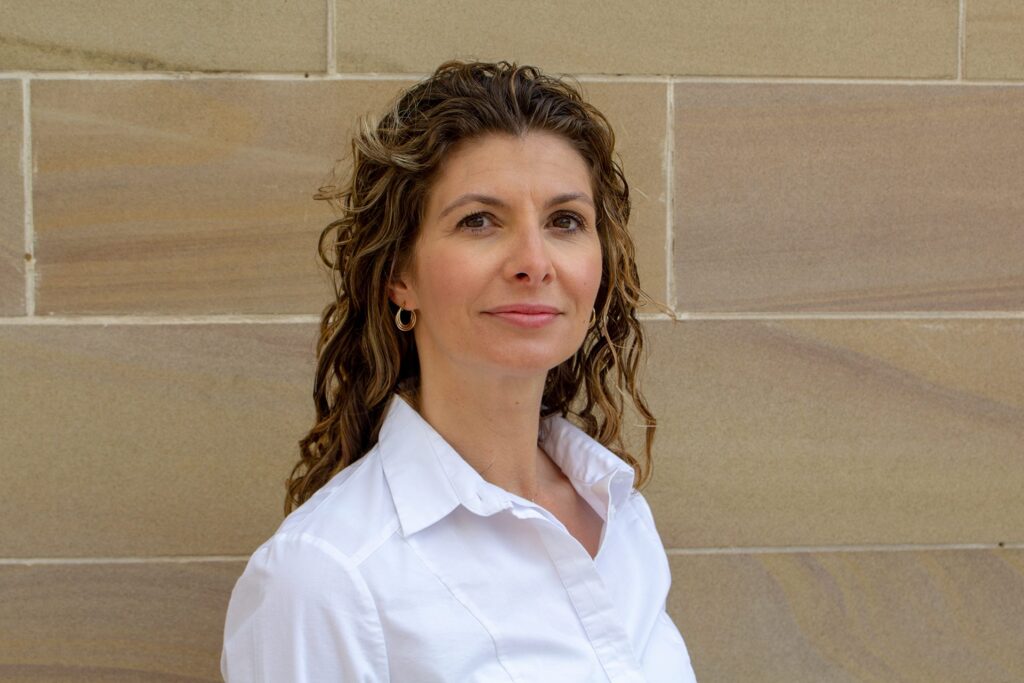
The environment in which we live is intrinsically linked with human health and well-being.
As a non-executive board member and the board champion for environmental sustainability I firmly believe that in seeking to take actions to improve the local environment and minimise our impact on the climate we can improve the likelihood that the local population have the basic necessities of clean air, clean water, sufficient food and secure shelter which are essential foundations for a healthy life.
In addition to this, improvements to the outdoor spaces in our estate can assist with the provision of green and blue spaces to provide opportunities for recreation, active travel and support well-being and mental health.
Working to balance current priorities with longer term strategic decisions to reach these goals will ultimately help to prevent future demand by improving the health of our population and helping to address the wider social determinants of health which cause health inequalities.
Profile 4: Vivienne Gough, Consultant General Surgeon
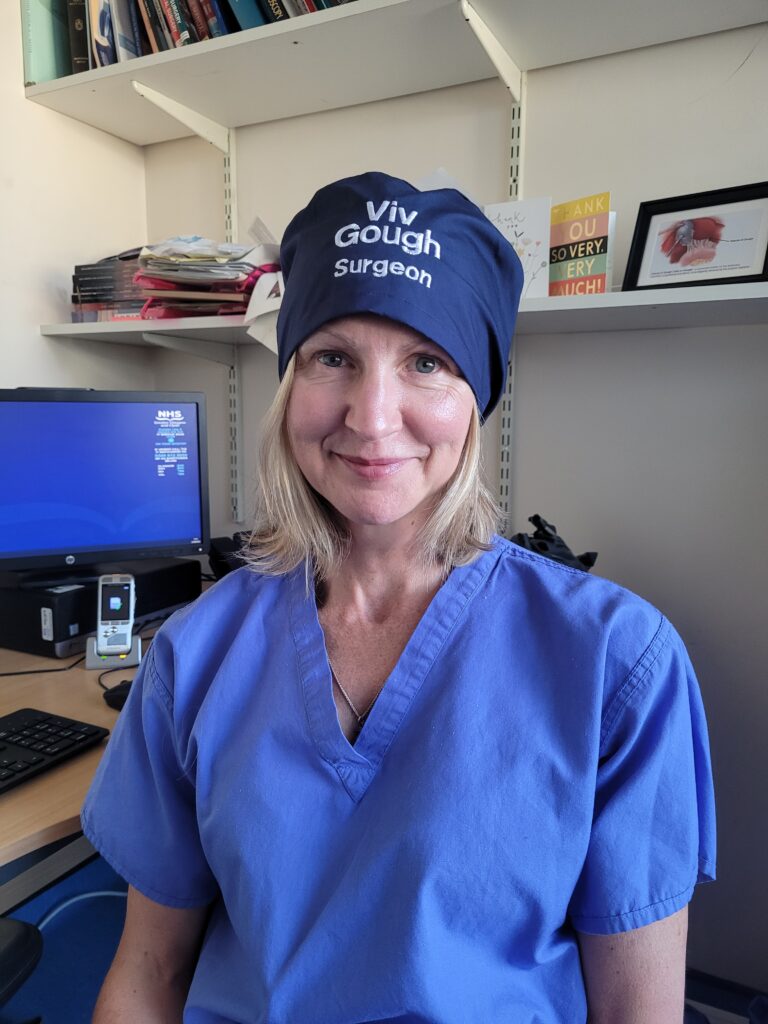
I’m a Consultant General Surgeon at the RAH. I first became involved in sustainability at work when frustrated that I was unable to recycle waste at work as I would at home due to a lack of recycling facilities. Since then my focus has broadened and i am involved in a GGC wide and also a national Green Theatres group which aim to improve sustainability in the surgical arena- it’s exciting that there are so many like-minded individuals in GGC and throughout Scotland who are eager to work to help to reduce the large carbon footprint that healthcare produces.
Sustainability, to me on a practical level, means trying to reduce and eliminate single use items and to focus on trying to minimise waste and packaging as much as possible. I’m working to try to pilot the re-introduction of reusable theatre gowns and drapes and we are currently introducing recycling of high value surgical instruments at the RAH. We have also started a weekly local anaesthetic hernia repair operating list- as the operations have a significantly lower carbon footprint than if performed under general anaesthesia.
So many sustainability initiatives are also cost as well as carbon saving as they reduce waste or unnecessary processes, that it really is a win- win for the health service.
Profile 5: Nikki Munro, Service Manager (Orthotics)
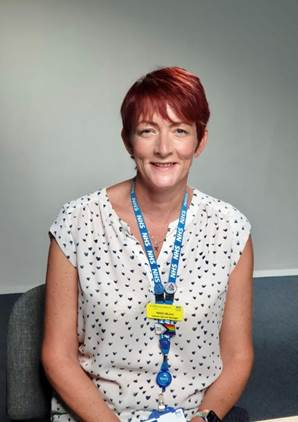
I am Service Manager for Orthotics in NHSGGC where we deliver service to inpatients and outpatients on all 8 acute sites and some community locations. As a department we measure for and fit custom body worn medical devices to patients and order around 20,000 items for our patients from external suppliers as well as manufacturing another 4000 per year in our in house manufacturing workshop at Gartnavel General.
At home I do everything I can to recycle and choose sustainability in everything I do so it’s a frustration that I’m not able to choose this for my service area as the amount of waste we create each year is considerable.
We work closely with our external suppliers to do all we can to help them to reduce packaging and their CO2 levels for deliveries to us as many of these companies have sustainability targets of their own to meet. Our new tenders include a scored sustainability section so we can choose to work with companies with a better sustainability record or evidence of innovative sustainability activities.
Our in house manufacturing workshop helps us to reduce transport costs getting devices delivered by external suppliers however we still create a lot of manufacturing waste. We hope this could be recycled in future along with a huge amount of packaging and cardboard which currently is not recycled within the board. We would aim to be an early adopter of any scheme which would allow this.
We utilise the Gartnavel transport drivers who pick up samples for the Beatson on the other 7 acute sites to deliver our devices out to individual hospitals, this is efficient use of current GGC resources and reduces both our transport costs and CO2 footprint.
Most of the items we prescribe are used by our patients daily for long periods of time, if not lifelong so devices need replaced regularly. However we have a repair service provided by our workshop at Gartnavel which allows patients devices to be repaired and refurbished reducing the need for new items and disposal of the old ones wherever possible.
Profile 6: Eleanor Murray, Doctor (Renal Medicine)
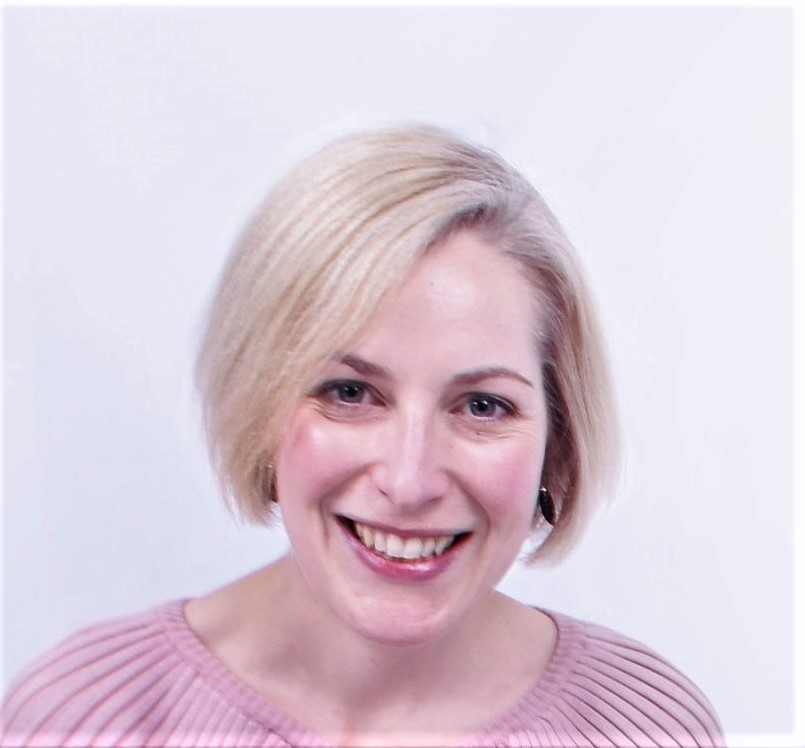
As a doctor, Sustainable Healthcare to me means an NHS that can provide high value care, whilst minimising ongoing harm to patients and communities from our fossil-fuel dependence, and limiting the inevitable future consequences of climate change and resource depletion.
Personally, the simple things are easy to start with: I cycle to work when possible, I take my reuse coffee mug, I turn off lights and dim computer screens etc.
Professionally, I try to apply realistic medicine and resource stewardship principals to healthcare decision making, as we all control the NHS carbon footprint through the tests we order, the consumables we use, and the treatments we prescribe.
Collaboratively, we have set up a Sustainability Committee within our department to raise awareness and to target carbon hotspots and low value healthcare activity through quality improvement work. We have saved over 1tonne CO2e in under a year through these projects. I also got involved in a national network that is flourishing, building an evidence base and sharing best practice across the UK.
Profile 7: Ewan Wallace, Paediatric Anaesthetic and Chronic Pain Consultant
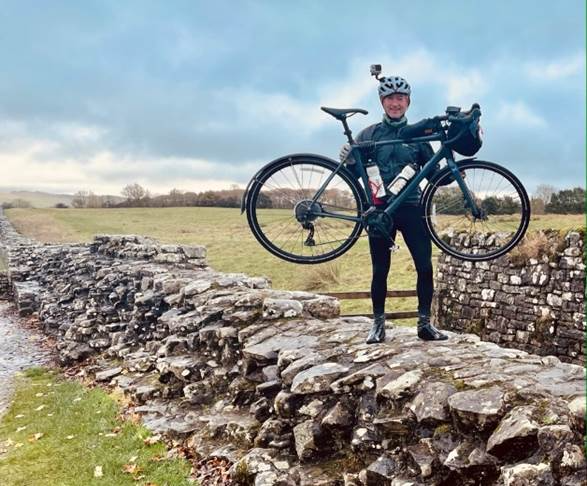
I am a Paediatric Anaesthetic and Chronic Pain consultant at the Royal Hospital for Children in Glasgow. In 2019 I started an ‘Eco-committee’ in the theatre suite in the Royal Hospital for Children to look at our environmental impact at work. This has subsequently grown into a role with dedicated time in my job plan to look at all aspects of sustainability within the theatre suite. At this time I also started meeting with a group of healthcare professionals, from across NHSGGC, once a month to try to form a network of support; this group has subsequently become the ‘Sustainability Clinical Governance Group’ a group that can hopefully influence, advise and support sustainable change for all specialties in the clinical setting.
All of this is supported immensely by also being part of the Green Anaesthesia Scotland (GAS) group. As a group we were privileged to present our ‘Green theatre project’ initiatives at COP26 in Glasgow in 2021.
As 25% of all hospital waste is produced by theatres, our impact on climate and environment does not stop once we get to work. As much as we can we need to step away from the single use, disposable culture that has pervaded the NHS. We all produce huge amounts of waste and subsequently incur a massive carbon footprint at work, the likes of which we would never tolerate at home. I am passionate about trying to effect change within the hospital to challenge the current culture and deliver a different way of working, one that is based on Reduce/Reuse/Repurpose/Recycle aligning with a more streamlined waste management and circular economy.